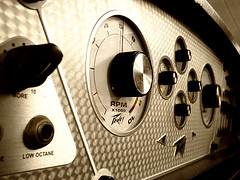There are as many sounds that can come out of a guitar as their are broken 1/4" instrument cables. that said there are some basics that from my experience elude most players and FOH sound people. There is nothing like the feel of a creamy, crunchy guitar filling in the dynamic middle of a great mix. nothing. Unfortunately that's what most congregations hear from the guitars in many services I've experienced. nothing.
this post hopes to spark a revolution in how we all think about this slightly dangerous instrument and its over-driven partners in crime.
Here's the chain. In the posts and comments ahead I hope to see this labyrinth of forces navigated and understood by all who play a role in delivering a creamy, nuanced guitar vibe to the ears and hopefully hearts of worshippers.
Milestones along the way include:
- guitar - pickups - single coils, humbuckers, passive, active, split, parallel,....
- stomp box - there are countless forums online about this topic. To get a glimpse of how deep this art is check out a study of the Edge's delay.
- amps - my personal crusade is to bless every worship service with the warm goo that emerges only from a nice tube driven amp
- pods and multi-effect units - I call this out since in many ways they are used as hybrids of stomp boxes and amps
- cabinets - closed back, combos, silent cabinets
- mics and mic placement on amps
- mixing the guitar sound with FOH sound
- monitoring - floor monitors, the amp itself, how to accurately feel what you are delivering FOH.

5 comments:
I love how you called the electric guitar a "dangerous" instrument. I think this is because so many people only see the instrument being used in the arena of rock-n-roll. It's as if they have become associated with the drugs, sex and r&r lifestyle. Many people in the church also think that church isn't a place for distortion. But my question back to them is often "Isn't music emotional?" Guitarists like myself love to use effects and distortions to create moods and sounds...that match the music. As long as guitarist do this I think it great. I just think that too many people that that just because we play electric guitar that we're going to start smashing our instruments on stage.
Ben
things are changing regarding distorted guitars since they are such staples of mainstream contemporary Christian music. The hurdle we still face is transitioning the guitar from the ipod to the sanctuary. I believe we guitarists are partially to blame for this. I see many players (including myself) hide in their distortion. We have a clean sound and an insane sound that never seems to even sound like metal. I continually hear guitars that sound like buzzing bees with no body or punch. I've found myself backing the overdrive back more and more. If you listen to the CD's carefully you will notice that rarely will you hear a really overdriven sound. Big Daddy Weave's version of Let it Rise is a case in point. Full of overdriven guitars but no metal sounds anywhere. they create a great mix of texture, overdrive and punch imho.
You're dead on. I think a lot of players do this because they aren't as precise in their playing as they would like to be. So they tend to push the heck out of their pedals. Lately I have found that the more I push my drives it creates an annoying hum when your not playing. I hate that. It makes it sound like there is a grounding problem when there isn't one. All in all, practice is the key. The more you practice, you can rely on your playing instead of allowing your sounds and effects take center stage.
I know I am guilty of too much fx. i am really curious what delay does in the FOH mix. would like to sched a guitar night with Tyler and travis.
I talked with Tyler about doing one for all of the guitarists and he asked me if I would help out. Of course I said yes. We'll probably use the electric guitar workshop DVD and have an open discussion about choosing parts to play, finding a good sound, and how to work within the band (which was already talked about in the first workshop). We'll keep you posted when it will happen. It would be awesome if you were there so that you could share some of the stuff that you have been writing about.
Ben
Post a Comment